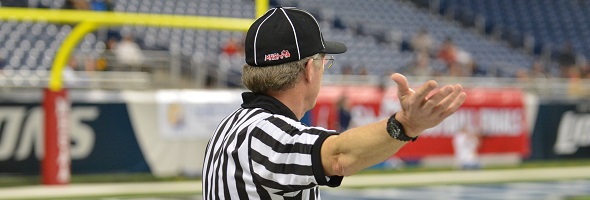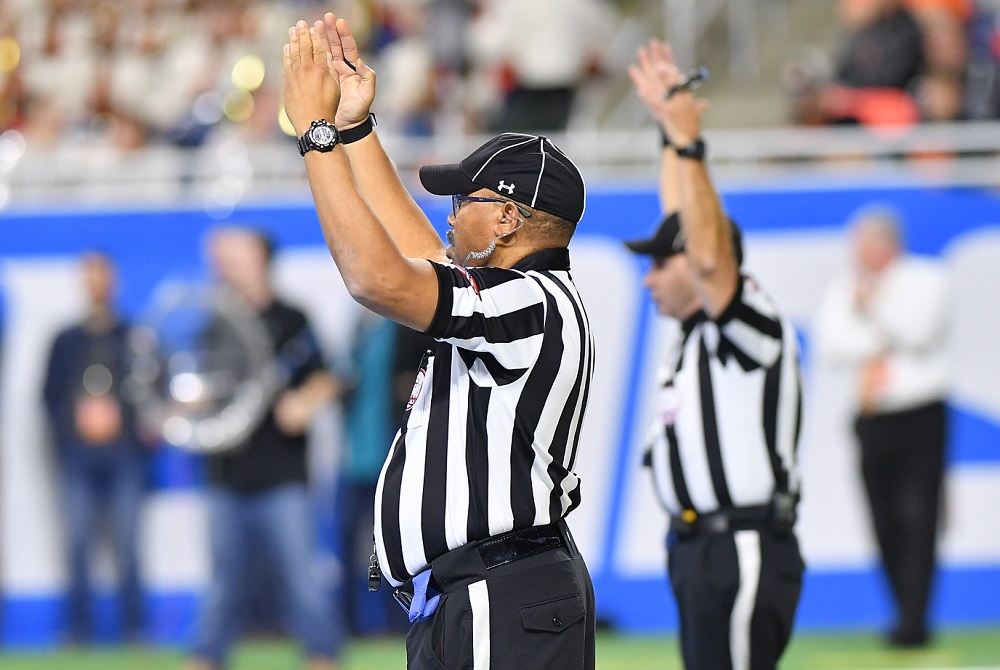
Be the Referee: Pass Interference
September 9, 2014
This week, MHSAA assistant director Mark Uyl explains one of the toughest calls to make on the football field.
"Be the Referee" is designed to help educate people on the rules of different sports, to help them better understand the art of officiating and to recruit officials. The segment can be heard on Mondays, Wednesdays and Fridays during the school year on The Drive With Jack Ebling on WVFN-AM, East Lansing.
Below is this week's segment - Pass Interference - Listen
Today we’re going to talk about one of the most difficult calls for any football official – pass interference. It’s important to know that whenever a forward pass is thrown beyond the line of scrimmage that both players – the offensive receiver as well as the defender – each have an equal right to make a play on the football.
Now, not all contact will automatically result in a pass interference foul. The official must judge if that early contact before the ball arrives has placed one of the two players at a distinct disadvantage. When that contact does create the disadvantage, you have a foul for pass interference. When the contact is minimal and is simply incidental, no foul has occurred.
Past editions
Aug. 25 - Targeting - Listen
Sept. 4 - Concussions - Listen

Be the Referee: Protocols & Mechanics
By
Geoff Kimmerly
MHSAA.com senior editor
August 26, 2021
“Be the Referee” is back for 2021-22 with MHSAA assistant director Brent Rice explaining how rules have reverted or been modified due to last year’s COVID-19 adjustments.
Be The Referee is a series of short messages designed to help educate people on the rules of different sports, to help them better understand the art of officiating, and to recruit officials.
Below is this week's segment – Protocols and Mechanics – Listen
Other than a few select instances, all MHSAA protocols, procedures and playing rules have returned to what they were pre-COVID.
This means that football team boxes will return to the area between the 25-yard lines, traditional ball-handling and other officials mechanics will return in all sports and postgame handshakes will be permitted as each school sees fit.
Additionally, there will be some rules modifications that were adopted during the pandemic that will likely be kept as part of the normal playing rules moving forward. The one that stands out for this upcoming fall season is that in volleyball, teams will not switch benches or sides of the net unless the referee determines that a team is at a disadvantage due to the layout of the facilities and obstructions.

